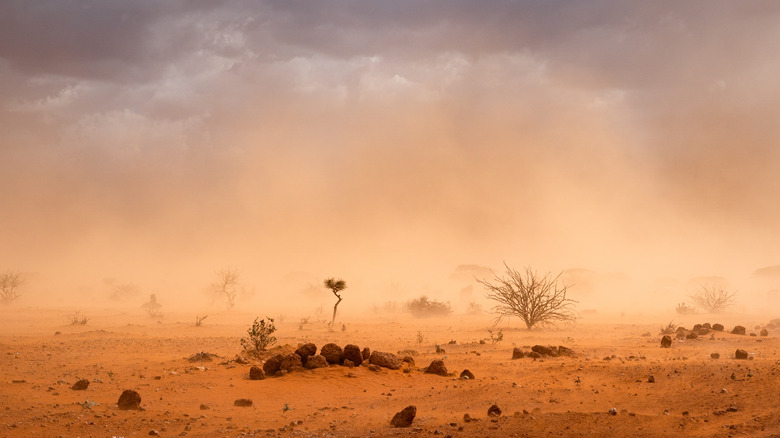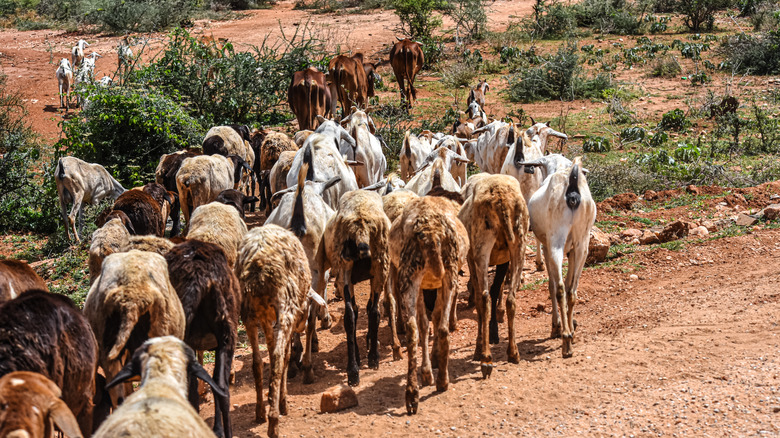Kenya's Valuable Livestock Dwindles As Drought Rages On
While climate change has created drought conditions across the world — from India to California and Argentina to France — Kenya, Ethiopia, and Somalia, as well as many other parts of the African continent, have faced the extreme hand of nature for the last four rainy seasons, severely impacting agriculture, including livestock herds.
According to OCHA's ReliefWeb, Kenya has two rainy seasons annually: March-May and October-December. But the rain has been slow to come or quick to end for the past several seasons, so rainfall amounts have dwindled. The European Commission called Kenya's most recent rainy season one of the worst droughts the country had seen in 70 years. They forecast that this troubling trend will continue through the October-December season as well.
ReliefWeb also notes that 98% of Kenya's agriculture sector is reliant on rain, not irrigation, from water crops to pastures and livestock. According to Reuters, the recent lack of rain forced 1.5 million people to flee their homes in search of food and water, and it has devastated crops and decimated livestock.
Drought impacts Kenya's livestock
Under normal conditions, Kenya's livestock farming sector is robust, with 10 million farmers earning their living from pasturage; the sector is responsible for 12% of Kenya's domestic gross product (via Gatsby Africa). However, Reuters reports the parched pastures of the past four seasons are leaving cattle and other livestock with nothing to graze. Herder Ali Hacho Ali tells the outlet only five cows of his herd of 70 remain alive. According to the European Commission, the current four-season drought is the most significant and prolonged crisis in the country since 1981.
Mohamed Malick Fall, UNICEF's regional director for eastern and southern Africa, tells Reuters that Kenya is facing severe effects of climate change even though the country has low carbon emissions. "It's not the (countries) ironically that are contributing more to that global emission that are paying the heaviest price," he says to the wire service. "And here comes the notion of equity and justice: Why should I pay such a heavy price for something for which I have not contributed so greatly?"

